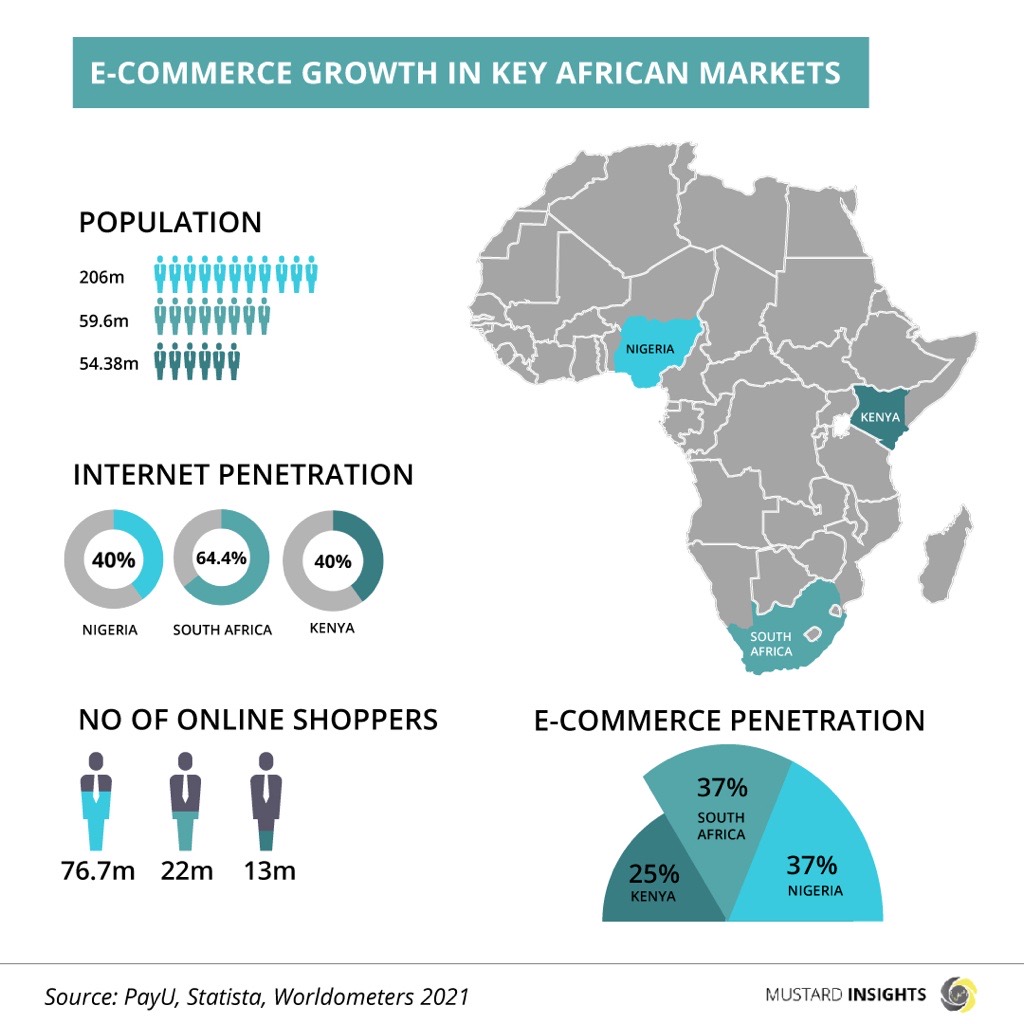Africa, with its fast-developing economies and large population, is experiencing an upward growth in the e-commerce industry which is increasingly disrupting the traditional retail industry because of the convenience it avails consumers.

Trade-in Africa has evolved. From the trade by barter system to the invention of currencies that allows people to trade goods and services for money, to the innovation of electronic commerce which allows individuals and companies to buy and sell goods and services over the internet.
Africa, with its fast-developing economies and large population, is experiencing an upward growth in the e-commerce industry which is increasingly disrupting the traditional retail industry because of the convenience it avails consumers.
The pandemic also contributed to the increasing demand for online shopping of groceries, books, and clothing items in Africa. E-commerce allows consumers to place orders for products from the comfort of their homes and any part of the world and have them delivered in a short period.
According to the United Nation, Africa has the youngest population in the world, with 70% of sub-Saharan Africa under the age of 30. These young and technologically savvy populations, who provide a large and diverse range of digital clients, are mostly responsible for the rise of e-commerce in Africa. In addition, internet penetration, and evolving payment services are also factors contributing to the growth of e-commerce in Africa.
In 2020, Africa’s e-commerce was estimated to be worth $20 billion. The leading countries driving significant growth in this segment are Nigeria, South Africa, and Kenya.
According to “PayU, Statista, Worldometers, 2021”, Nigeria has the largest business-to-consumer e-commerce market both in terms of the number of shoppers and revenue. Having a population of 206 million people, it has 37% of e-commerce penetration, 40% internet penetration, and 76.7 million online shoppers. The large market, along with the high smartphone penetration and an increasingly young urban population combines to make Nigeria a great environment for the growth of e-commerce.
South Africa, the third-largest economy in Africa has been a major driver of e-commerce across the continent. With a population of 59.6 million people, it has 37% of e-commerce penetration, 64.4% internet penetration, and 22 million online shoppers. During the lockdown, most of the e-commerce transactions in South Africa were completed using mobile devices, and as smartphones continue to be more available, it will be a major channel to reach a new wave of consumers.
The e-commerce market in Kenya still has more room for growth. With a population of 54.38 million people, it has 25% of e-commerce penetration, 40% internet penetration, and an estimate of 13 million online shoppers. With increased financial inclusion, and a range of FinTech services such as M-Pesa expanding their reach to Kenya, there is no doubt that the growth of the e-commerce market is expected in that region.
African consumers want good quality products, at a good price, and want the convenience of them being delivered on time. These needs are solved by e-commerce, and that is why it has a lot of potential across the continent.
However, for there to be sustained growth in the e-commerce sector, there have to be significant improvements in logistics, internet availability, and payment platforms. Consumers need to feel safe in making payments and trust that their data is protected and that the products they pay for will be delivered on time and in great quality.
Thoughts?
We won't share your email address. All fields are required.
